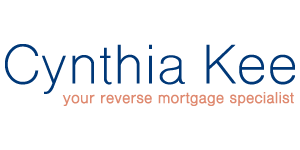How to Use Home Equity to Empower Your Retirement?
"Don't wait. The time will never be just right." –Napoleon Hill
When you decide to retire, you’ll need to determine how much money it will take to live comfortably and remain financially sound. Social Security and retirement investments such as a 401(k) or IRA can help, but there may be times when you need more income. One often overlooked source of income is your home equity.
What Is Home Equity?
Home equity is the difference between the balance on your mortgage and your home’s current market value. For example, if you owe $90,000 on your home loan and your property is worth $350,000, your home has $260,000 of equity.
Equity can fluctuate based on the market. In a seller’s market, you may have more equity than in a buyer’s market. A real estate appraiser can provide you with an official valuation based on comparable home sales in your area. You can also get a general idea by reviewing real estate websites and searching for recently sold properties similar to yours in location, size, and age.
How to Turn Home Equity into Cash?
Once you know how much equity you have, there are several ways to turn it into cash.
Home equity loan or line of credit. A home equity loan generally offers a fixed amount of credit and interest rate that you repay over a set period of time, usually ranging from five to 15 years. A home equity line of credit is a revolving balance that can be drawn from when needed. Similar to a credit card, you make payments on the amount you borrow.
Cash-out refinance. You can also draw on your home’s equity by doing a cash-out refinance. In this case, you refinance your mortgage for more than its current balance, taking the cash difference.
Reverse mortgage. Another option for tapping into the equity in your home is generally available to homeowners 62 years or older. With a reverse mortgage, the lender makes payments to the borrower—the reverse of a traditional mortgage. The homeowner isn’t required to pay back the loan as long as it remains their primary residence, provided the borrower continues to meet all loan obligations, such as paying property taxes, fees, and hazard insurance, and maintaining the home. If the homeowner fails to meet these or other loan obligations, the loan will need to be repaid.
Downsizing. You may decide your home is too large for your retired lifestyle or that you no longer need to live in an expensive area. You could sell your home and buy a smaller, less expensive place. This would allow you to keep some of the equity you had built.
Pros and Cons
Using your home equity can offer advantages, depending on the method you choose. Reverse mortgages, for example, allow you to tap into your equity while staying put and retaining ownership. And downsizing often comes with lower maintenance costs and work, and you won’t have to take on additional debt.



